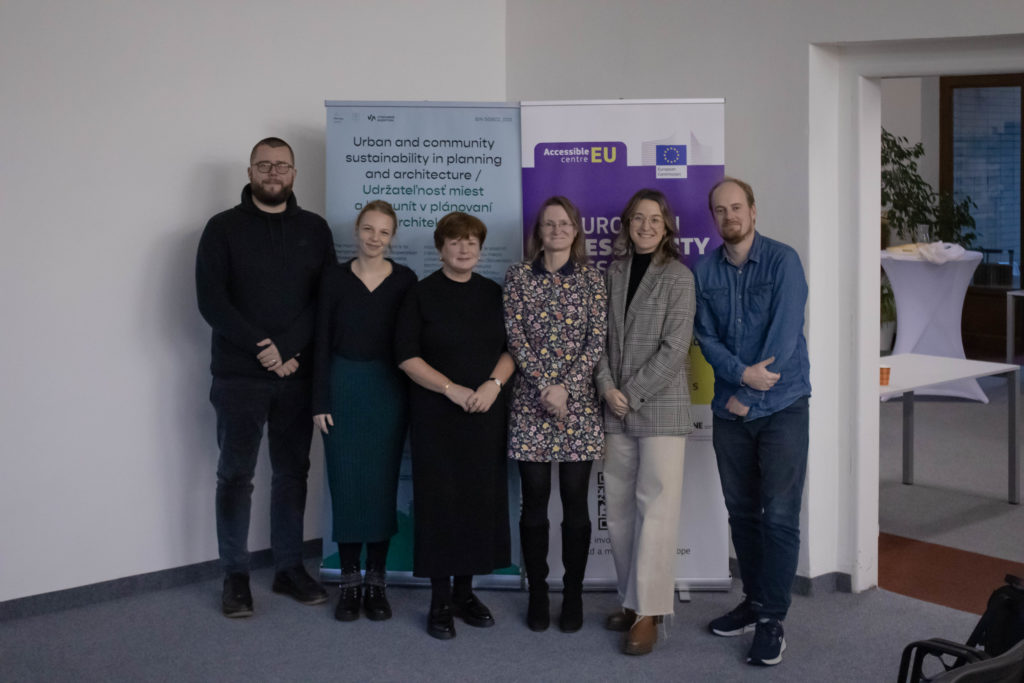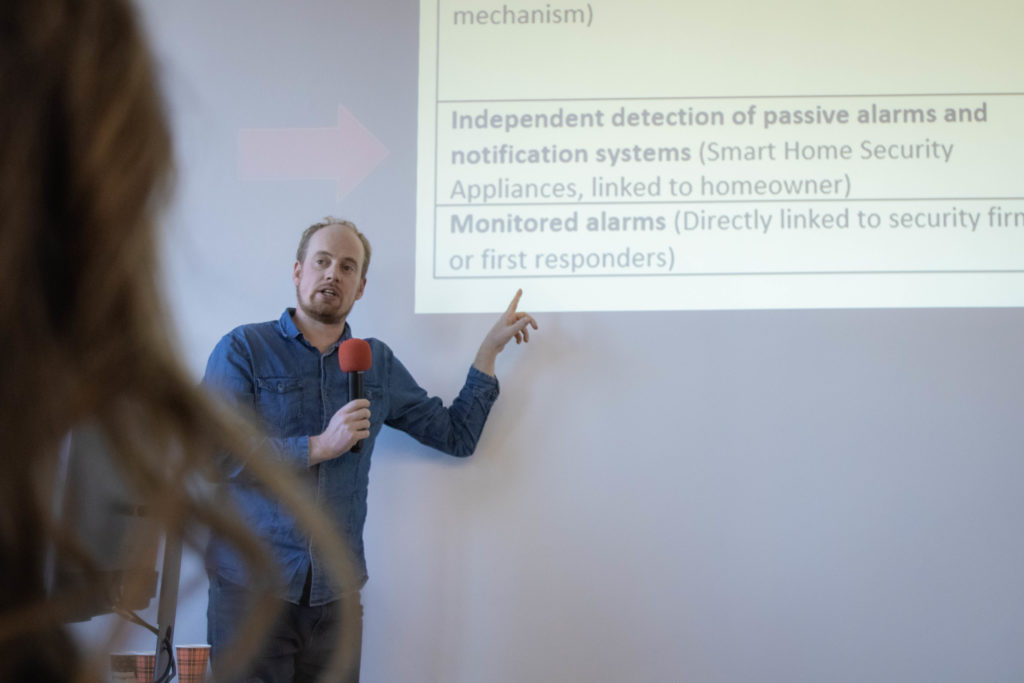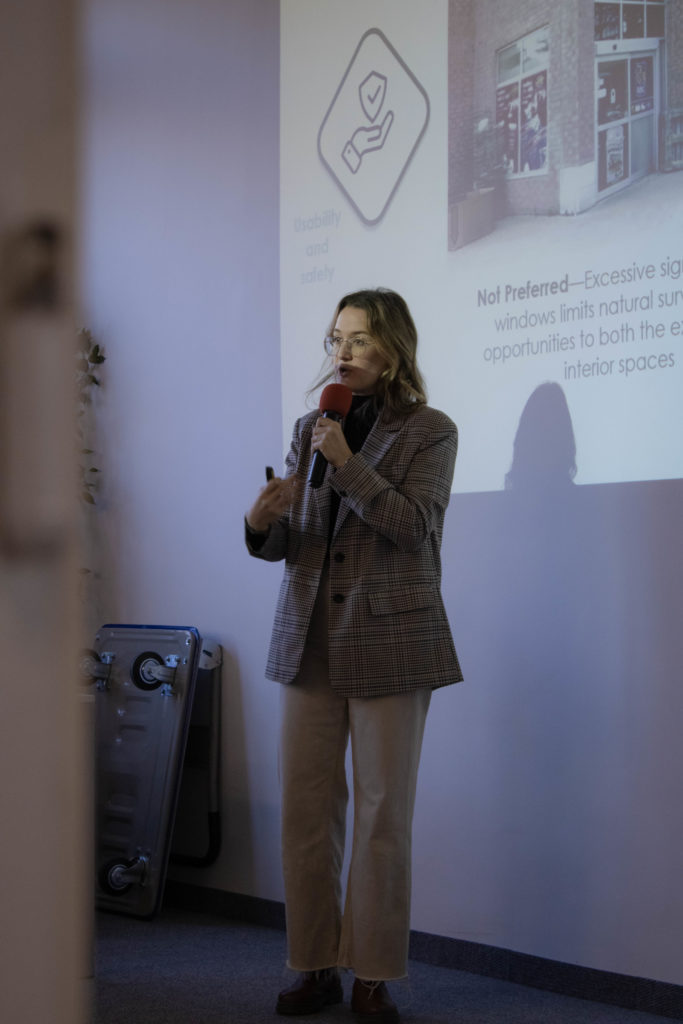Workshop Universal Design, Bratislava, Slovakia
27.6.202421 November 2023
The Faculty of Architecture and Design at STU in Bratislava hosted an engaging and enlightening workshop which marked a pivotal step in understanding the critical role of universal design in shaping sustainable and inclusive urban environments. The workshop kicked off with an introduction to the UMKA project by Zuzana Čerešňová, Associate Professor and Vice Dean for Research at FAD STU. With a focus on accessibility within the European Union, this session set the stage for a day of exploration and discovery. Following, Ana Llopis Alvarez, Associate Professor from the University of Stavanger in Norway gave a lecture, “Universal Design Permeates the Principles’ about foundational aspects of Universal Design, exploring its integration into national and regional planning priorities. Small groups received examples of small-scale urban areas, becoming active contributors to the discourse on Universal Design. Afterwards, Tegg Westbrook, Associate Professor at the Faculty of Science and Technology, Department of Safety, Economics and Planning at the University of Stavanger presented “Assisted Living in Smart Homes.” His lecture explored how safety, remote communication, energy management, medication management, and emergency response could contribute to specific assisted living needs. Following the informative lecture, participants participated in an interactive exercise focused on assessing the cost versus benefits of specific devices. Finally, Cathy Dalton, an architect, design researcher, and the founder of MUSE Design in Ireland presented the lecture “Design for Neurodiversity,” exploring the concept of a responsive environment that maximizes individual user well-being. Students then examined a model project floor plan, collectively considering whether and how they could modify it to better meet the needs of neurodiverse users. After each exercise, participants presented their findings. All lectures and discussions were simultaneously translated into Slovak / English, as well as into sign language, so the workshop tried to be as inclusive as possible.


